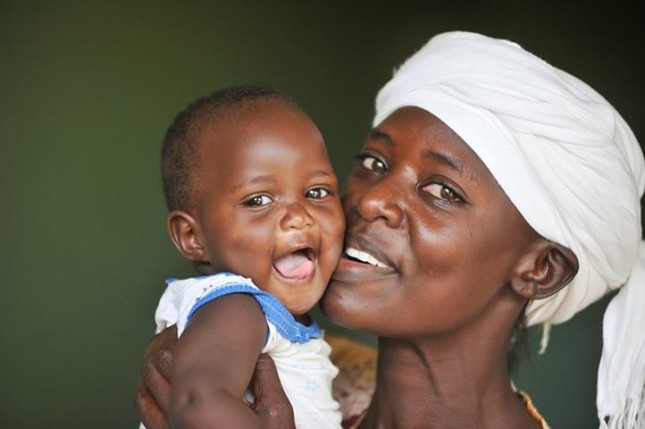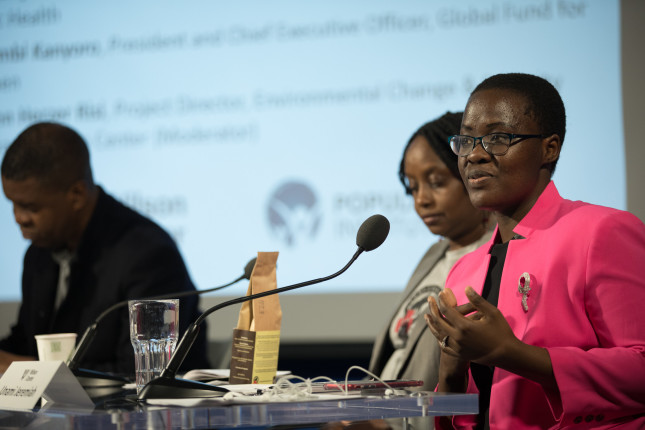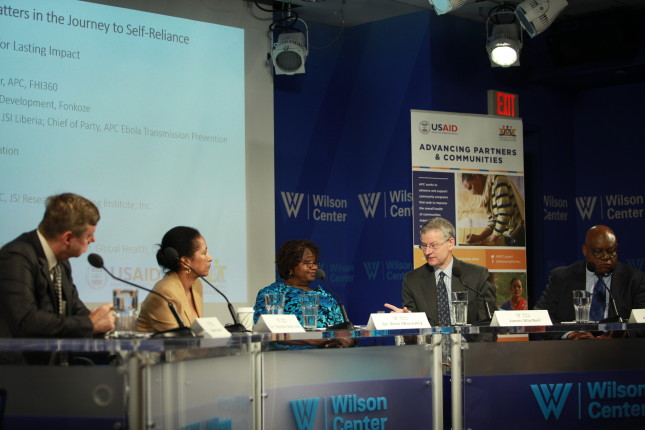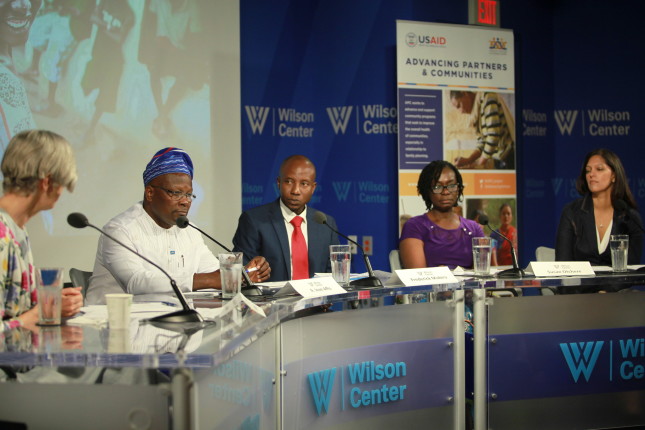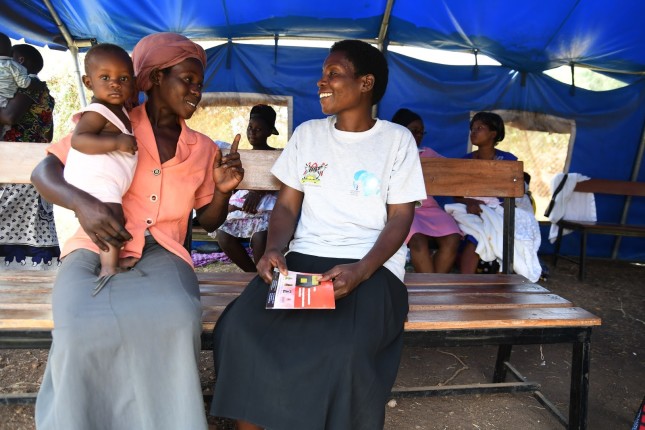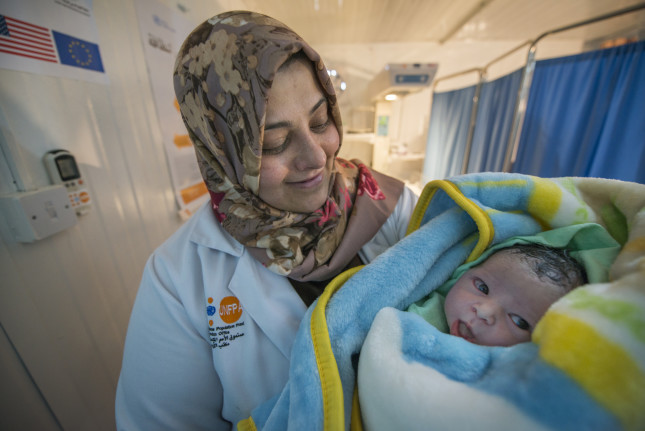-
Race, Bias, and Equity in Prenatal Care: No Pregnant Woman is the Same
›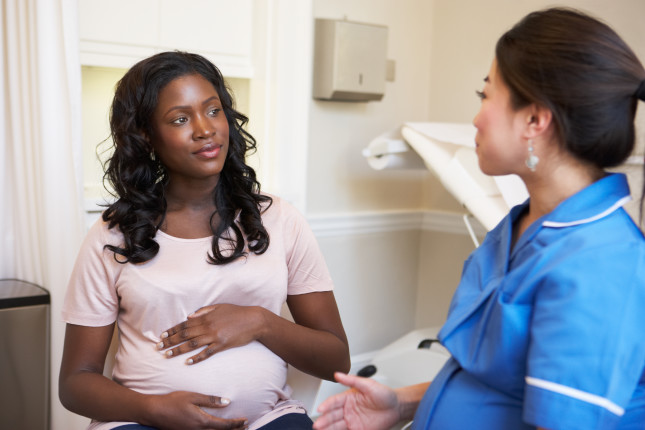
It’s disturbing to see the data going in the wrong direction and it means we have to go beyond what we’ve been doing, said Terri D. Wright, Vice President of Programs and Community at the Eugene and Agnes E. Meyer Foundation at a recent event on equitable prenatal care in the United States hosted by The Jennifer Bush-Lawson Foundation and the American Medical Association at Duke University in DC. “We can’t do the same things the same way and expect a different outcome,” she said. “We’ve got to do something different.”
-
New Report: Six Steps Towards Ending Preventable Maternal Mortality
›
In Six Steps Towards Ending Preventable Maternal Mortality, Sarah B. Barnes, Project Director of the Maternal Health Initiative, Geeta Lal, Senior Technical Advisor at the United Nations Population Fund (UNFPA), and Elizabeth Wang, Staff Intern at the Maternal Health Initiative, discuss suggested steps to prevent avoidable maternal deaths, globally.
-
Africa in Transition: Highlights from a Conversation on Investing in Youth for Economic Prosperity
›
Africa in Transition, a new series hosted by the Wilson Center and the Population Institute, explores the role of population trends—migration, urbanization, fertility, maternal mortality—in shaping sub-Saharan Africa’s chances for prosperity, health, and security. In this podcast, we share highlights from the first Africa in Transition event. Parfait Eloundou-Enyegue, Professor at Cornell University, starts the conversation by reminding us that “African countries are in the middle of multiple transitions that have the potential to create opportunities for prosperity, growth, and increased human capital, but also to create greater inequality. The challenge, therefore, is to build prosperity, but to do it for all.”
-
International Aid, Local Capacity Building: Improving Community Health Through Partnerships
›
Seeing the influx of international aid into Haiti following the 2010 earthquake, Dr. Florence Jean-Louis, Director of Human Development at Fonkoze, asked herself, “How can all this support, all this solidarity, stay in-country and have a real impact in the long-term?” She spoke at a recent Wilson Center event on the importance of community health systems to the sustainable development and stability of countries. The answer, she concluded, was to build the capacity of local organizations.
-
Attitudes, Hotspots, and Role Models: Promoting Family Planning in Rural Communities
›
“Strengthening community health is critical to expanding voluntary family planning,” said A. Jean Affo, Chief of Party at Advancing Partners & Communities (APC) Benin at a recent Wilson Center event on the importance of community health systems to the sustainable development and stability of countries. In Benin, around half of the population lives in rural areas with a lack of access to quality healthcare services and information. Traditional attitudes and gender norms prevent women and couples from utilizing family planning methods, said Affo. Combined with early marriage, inadequate family planning leaves women and girls vulnerable to health issues associated with inadequate timing and spacing between pregnancies.
-
Savings Mothers, Giving Life Tackled Three Delays to Improve Maternal and Newborn Health
›
“Saving Mothers, Giving Life has undeniably raised the bar in how we address maternal perinatal mortality,” said Dr. Florina Serbanescu, Team Lead of Global Reproductive Health Evidence for Action at the Centers for Disease Control and Prevention, for the launch of the Global Health: Science and Practice Supplement on Saving Mothers, Giving Life at a recent Wilson Center event. Saving Mothers, Giving Life (SMGL), is a public-private partnership created to reduce maternal and newborn mortality in sub-Saharan African countries. “The achievements show that what is often seen as an intractable problem,” said Serbanescu, “can be addressed with the right leadership, resources, and political will.”
-
Where Life Begins: Reducing Risky Births in a Refugee Camp
›
Zaatari camp, the largest Syrian refugee camp in the world, sits less than 12 kilometers away from the border between Syria and northern Jordan. Rows of houses disappear into the desert, making it hard to tell where the camp begins and ends. Metal containers pieced together like patchwork are home to around 80,000 refugees. The remnants of tattered UNHCR tents cover holes in the walls. Almost seven years after the camp opened, this dusty sea of tin roofs has evolved into a permanent settlement.
-
Forging A New Path Toward Universal Sexual and Reproductive Health and Rights
›
“The Guttmacher-Lancet Commission could not come at a better time,” said Patricia Da Silva, Associate Director of the International Planned Parenthood Federation United Nations Liaison Office. “It is indeed the call to action that is required; showing us that comprehensive sexual and reproductive rights must be ensured for all.” She spoke at a recent Wilson Center event on the work of the Guttmacher-Lancet Commission on Sexual and Reproductive Health and Rights (SRHR). The Commission, an international collaboration of 16 SRHR experts from Africa, Asia, Europe, the Middle East, and North and South America, recently published a report, Accelerate Progress—Sexual and Reproductive Health and Rights for All, which makes concrete recommendations for countries to address SRHR gaps and inequalities.
Showing posts from category health systems.


